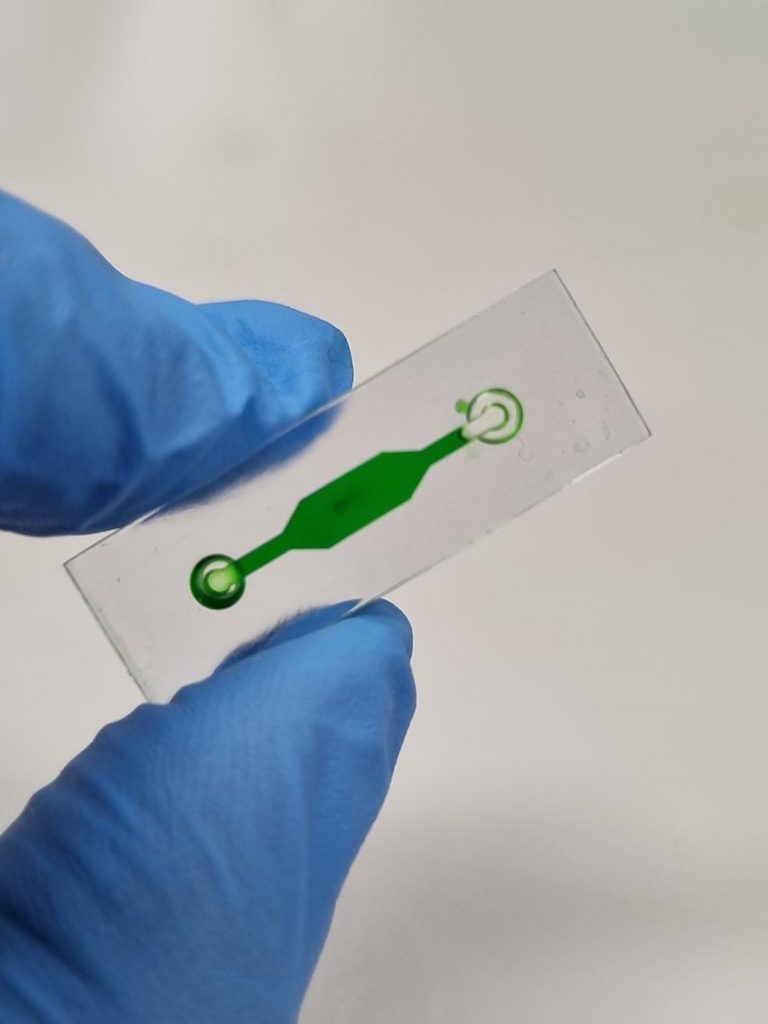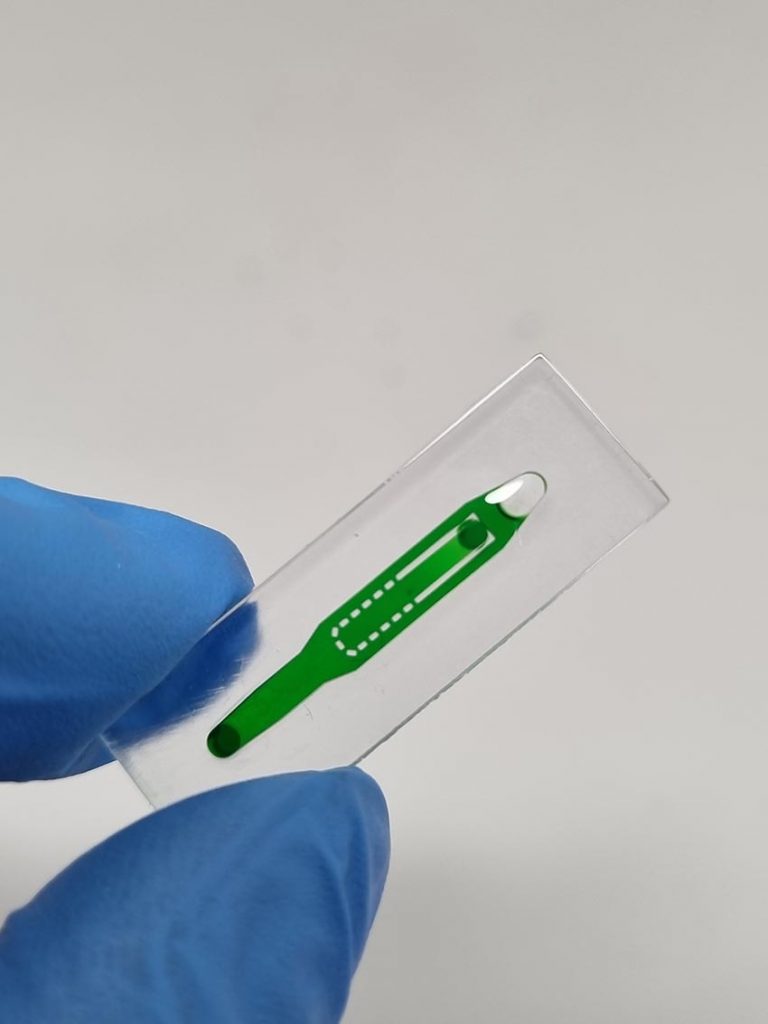Manufacturing microfluidic components for cell-based experiments can be a challenging task. A group from the Queensland University of Technology examined the extent to which state-of-the-art 3D printing can provide valuable assistance to science. For this study, they used materials that came from Hamburg: MOIIN High Temp and MOIIN Tech Clear from DMG Digital Enterprises.
Advantages of 3D printing
The field of microfluidics deals with moving, controlling and analysing liquids in the micro range, i.e., on linear scales of less than one millimetre. Microfluidics can be applied to many fields of technology, medicine or biology. Through 3D printing it is basically possible to manufacture very fine fluidic channels within 3D space without the need for laborious assembly of multiple parts. In this way, it is possible to accelerate the prototyping turnover rate.

Two MOIIN resins put to the test
Scientists at Queensland University of Technology in Brisbane, Australia, conducted a case study to investigate the suitability of 3D printing resins in manufacturing microfluidic devices for cell-based applications. They used our two 3D printing resins MOIIN HighTemp and MOIIN Tech Clear, and printed on ASIGA UV Max X27 DLP printers.
In the case study, they created three particularly common microfluidic designs: 2D monolayer culture devices, pillar arrays and constricting channels for droplet generators. To examine device compatibility under the microscope, the team focused on MOIIN Tech Clear, which was developed specifically for printing transparent objects. Finally, material biocompatibility was assessed using tissue monolayer cultures.

Positive conclusion and optimistic outlook
In summary, the study concludes that “with MOIIN HighTemp and MOIIN TechClear, the 3D printing of microfluidic channels for cell-based applications are feasible. Both resins are observed to be biocompatible and highly amendable for microscopy imaging. This observation potentially opens many opportunities for rapid prototyping of new generations of microfluidic channels for biomedical applications.”
The complete case report can be found on the MOIIN homepage: https://www.moiin-resins.com/use-cases/
DMG Digital Enterprises SE
Elbgaustr. 248
22547 Hamburg
Phone: +49 40 84006-265
Mobile: +49 172 1021 455

